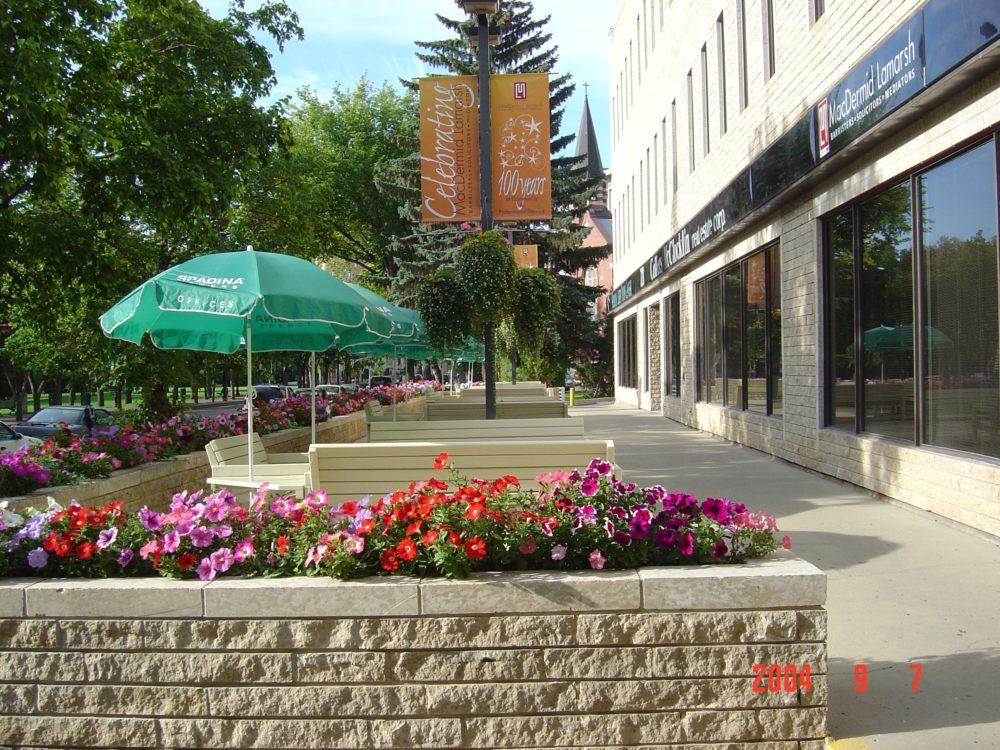The lobbying and promotion of the commercial owner and their unfortunate influence upon the Board to install fob activated entry proved to be simply for the convenience of the commercial owner and their tenants to use these fobs to ENTER BOTH THEIR UNITS AND THEIR STAIRWELL. Residents, on the other hand, received no such benefit, and CONTINUE TO REQUIRE KEYS TO ACCESS BOTH THEIR UNITS AND STAIRWELL. No improvement to the security of residents has been demonstrated. In fact, security to residents has been lessened as a result.
Does the Board not realize, that ANYONE CAN WALK IN OFF THE STREET AND ENTER THE COMMERCIAL ENTRANCE, WALK A FEW FEET TO THE STAIRWELL, TAKE A FEW STEPS DOWN TO THE PARKADE, BREAK INTO VEHICLES, TAKE THEIR STOLEN PROPERTY AND SIMPLY EXIT BY RETURNING THROUGH THE COMMERCIAL FRONT DOOR ENTRANCE OR THE BACK DOOR IN THE PARKADE..
No such means of entry is possible from the residential front entrance whether fobs or keys are required. Therefore, current security issues are a result of deficiencies (within the commercial condominium units), and have nothing to do with access to the residential side. It is the responsibility of the commercial owner to, at their own expense, address these security breaches and not demand that residents share in this expense.
Calls for considering residential concerns to this proposal, were simply rejected by the Board. As is very clear in the Condominium Property Act, Section 8(1), “doors and windows are part of a unit” and therefore the OWNER is responsible for any cost associated with them. This would include the cost of modifying or replacing any door to ANY “UNIT” in the building. This of course, includes modifications for fob entry.
On the other hand, doors separating common area on each side of a door, are as such, “not part of a unit” and any modification (ie. fob entry), is a common area expense. Thus, resident unit owners need only to contribute to their proportionate share of the cost of required modifications to the door of the front residential entrance.
As a result of the fob entry equipment modification to doors, residents wrongfully paid for the majority of this expenditure which cost some $10,000 plus. The Board proceeded as per the wishes of the commercial owner and further, failed to ensure a correct allocation of this cost as is required by both our Bylaws and the Condominium Property Act.
A number of requests have been made for an accounting of the total costs of this entry system including a reconciliation and analysis on the number of fobs in circulation, their cost and the destination of all revenues collected. The Board has refused to provide such information.
The Board is hereby requested to provide by current fiscal year end, a full report on all costs and revenues relative to this installation and subsequent costs of this system including the specific location of any associated and installed equipment. A review of this report should be made available at the request of any resident and a corrected allocation of any and all costs must then be conducted. The recovery of the excessive contribution of residents will be substantial.
It will be interesting to see if our residential Board members are prepared to consider and support the concerns of residents where they have borne the majority of unlawful funding in support of an expenditure of convenience for the benefit of the commercial owner and their tenants.
Any attempt by management to blame residents for security breaches as noted above, and restrict the number of fobs in their possession clearly demonstrates a lack of managements and the Board’s understanding of the essence of this problem which has been noted above. An expensive computer monitoring program provides a record and history of fob activity. Before blaming residents for security breaches, the Board is advised to provide residents with evidence of such incidents.
Further, as has been requested in the past, residents are entitled upon request, to a full accounting of the total costs of this fob system along with all fobs purchased, distributed, and what revenues have been collected. Any suggestion of restricting the number of fobs per resident is simply a poor excuse for failed security in the commercial units as noted above. Unfortunately, resident vehicles are exposed to theft and damage, just as they were before the fobs were required. Once again, there has been no security benefit whatsoever and at the expense of residents. I would suggest that residential Board members at least take a stand on this issue; that is if they have anything to say about it.
